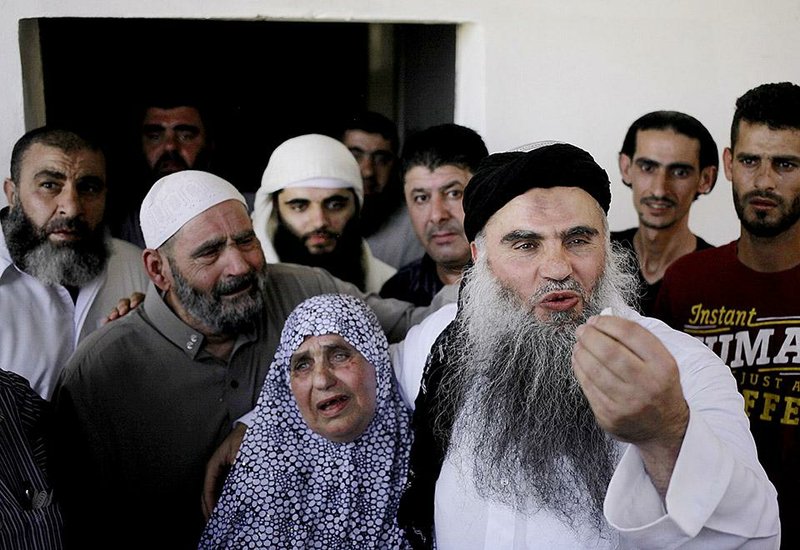AMMAN, Jordan -- For the second time in a matter of months, a state security court in Jordan on Wednesday acquitted a militant Islamic cleric known as Abu Qatada on terrorism charges, a reversal of his fortunes after an earlier death sentence.
Judges said there was insufficient evidence against him, and, within hours, he walked free from prison, news reports state.
The cleric, whose real name is Omar Mahmoud Mohammed Othman, stood for the judgment in a cage inside the courtroom. As he was pronounced innocent, relatives chanted "God is great" and his eyes filled with tears, according to reporters at the hearing. The verdict punctuated 15 years of legal battles with Jordanian and British authorities.
His acquittal came after he and another militant cleric known as Abu Muhammad al-Maqdisi, whose real name is Mohammed al-Barqawi, condemned the Islamic State, the militant Sunni group that broke away from al-Qaida. The group is seeking to extend its authority in Syria and Iraq, igniting concerns that the militants could spread chaos in Jordan, too.
Jordan is one of five Arab nations that joined the United States in bombing Islamic State targets in Syria early Tuesday. Analysts said the acquittal of Abu Qatada could reflect a calculation among Jordanian security officials that there is a tactical advantage in releasing him as a counterweight to the influence of newer and more extreme jihadists, such as those loyal to the Islamic State.
The cleric faced accusations relating to a plot to bomb Israeli, U.S. and other Western tourists at millennium celebrations in 2000. In June, he was acquitted on separate charges of planning to carry out a terror attack on a U.S. school in Amman.
He had denied all the charges. British officials have said they will resist his return to Britain, where he spent many years in exile and where he is still subject to a deportation order.
Earlier this year, the cleric joined Maqdisi in urging Islamic State leaders to refrain from killing Muslim and non-Muslim hostages who had not taken up arms against them. The group has released videos showing the beheadings of two U.S. journalists and a British captive in recent weeks.
A fourth Western hostage, Alan Henning, a British cabdriver who had volunteered to deliver humanitarian aid in Syria, has been threatened with the same fate. His wife, Barbara, issued an appeal for mercy late Tuesday, saying she had received an audio file of Henning pleading for his life.
Othman, a Jordanian citizen of Palestinian descent and a father of five, fled to Britain and won the right to remain there in 1993 when he sought asylum, saying he had been tortured in Jordan. The case against him had its origins in two trials in Jordan in 1999 and 2000, after the cleric had secured asylum.
As efforts continued to deport him to Jordan, the cleric was imprisoned or held under restrictions amounting to house arrest in Britain for several years, resisting his expulsion for years by arguing that a retrial in Jordan would be based on evidence obtained under duress.
In the first case, in 1999, Othman was sentenced to death in the purported plot on the Amman school, a judgment that was later reduced to life imprisonment. In the second, he was sentenced to 15 years in prison for involvement in the alleged plot to attack tourists.
After Jordan and Britain agreed to a treaty last year to forbid the use of evidence obtained by torture in a retrial, he was deported. Britain celebrated his departure as a turning point in its struggle against Islamic ideology linked to al-Qaida.
Western European intelligence agencies have accused Othman of having links to senior al-Qaida officials.
German security officials have said tapes of Othman's sermons were found in apartments in Hamburg, Germany, that were used by some of those involved in the Sept. 11, 2001, attacks on the United States. A Spanish judge called him Osama bin Laden's "right-hand man in Europe."
Information for this article was contributed by Ranya Kadri and Alan Cowell of The New York Times.
A Section on 09/25/2014

